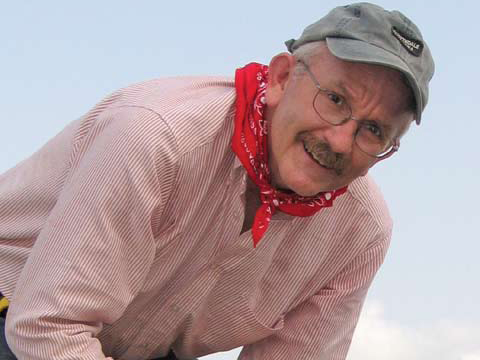Serving a God of Second Chances

David Argabright's idea for what to focus his life on didn't start in 2002 when he noticed that he was covered in his own sweat and blood, while quarantined in a rural Argentina clinic, but it did clarify his focus.
Malaria was nearly killing him. In fact, every other person in the clinic died while he was there. He wondered if he would also die. And he really wondered after he looked down and saw the blood all over his body. He had struggled to sit up and peel an orange and had unknowingly popped the IV out of his arm.
'I thought they had cut me in half,' he said. 'That's how badly I was hallucinating.' He told God, 'Unless you touch me, I will never get out of this bed. If you need me to continue to work, I'm available. But I'm also ready to die.'
Soon after that, a friend visited him in the clinic and read 1 Peter 5:10, 'And the God of all grace, who called you to his eternal glory in Christ, after you have suffered a little while, will himself restore you and make you strong, firm and steadfast.' In that moment David knew his strength would be restored and that he would serve God more vigorously.
After the near-death experience in Argentina, David returned to his family's construction business in Virginia and looked for ways to involve more of his time and the company's resources in international mission efforts. This wasn't a new idea to the family. David's father, Leon, had started the business in 1964, and most family members had enjoyed Work and Witness trips for years. 'I'd tried to be faithful to God in the years before my time in that clinic,' David said. 'But when God gave back my strength, I was more committed than ever.'
This was not the first crisis that drove David and the Argabright business into a deeper commitment of serving God by serving others. A previous time had occurred in 1980 when the Argabrights had almost lost their company. An employee of Argabright Contractors had stolen a company truck and crashed it, killing one person and paralyzing another. The victims' families sued the company, and the claim looked like it would force the business into bankruptcy.
While the legal process slowly moved forward, David's wife suggested he go on their church's Work and Witness trip to the Dominican Republic. Working with Nazarene missionaries Elmer and Dorothy Nelson there, David said he felt a kinship with them. 'They took the opportunity to pray for me and love me,' he said. 'I returned home longing to be part of Work and Witness in a more intentional way.'
The lawsuit was settled without bankrupting the business and the Argabrights committed themselves and their company anew to serving others.
David has now been on approximately 90 Work and Witness trips, helping connect thousands of willing people to regions of God's activity around the world.
He started in Central America, then focused on South America, then on the Horn of Africa, and now coordinates Work and Witness efforts for the Church of the Nazarene on the South Asia Field. Significant growth for the Church of the Nazarene is occurring on this field, just as it did wherever Argabright was involved before.
Now when he encounters groups of people in malaria-infested parts of the world, he has an easy point of connection. He remembers a particular tribe he encountered in which the women had enormous scars from cutting themselves to drain 'bad blood.' He said, 'It gave me a chance to talk about my experience, too, which then made it easy to talk to them about the Lord.'
David's passion rubbed off on his brother, Glen Argabright, who found his own real wake-up call when he first saw the JESUS film. 'I immediately felt a direct pull and call to be involved,' he said. 'I had never seen something this effective. I think it's the greatest evangelism tool of all time.' The combination of seeing the impact of the film and praying for teams taking the film around the world revolutionized Glen's spiritual life.
'The most incredible thing would happen,' he said. 'The more I supported a specific team, and prayed for them every day, the more my prayer life exploded and the deeper I got.' Eventually, Glen made nearly 50 trips outside the U.S. to get the film into the hands of people who might otherwise not have heard about Jesus.
Glen was even recently named partnership facilitator by the Church of the Nazarene for the South Asia Field. He is involved in connecting people from around the world to missionaries in order to create child development centers and pastoral training facilities, distribute the JESUS film, coordinate prayer connections, and do whatever else is needed in the field that is not provided through traditional tithes and special offerings.
He remembers one particular night of showing the film at a refugee camp in war-ravaged African country, where more than 700 people attended. Glen felt that the response was lukewarm, even though about 70 people made commitments to Christ that night. As the crew was packing up the equipment, Glen said he asked the person in charge of the camp what would happen to these refugees if another war broke out. Glen was told that the refugees would be killed as spies. 'I cried the whole way home,' Glen said, 'and even on the flight back to the U.S. I prayed over and over that they would be given another chance-that I would be given another chance.'
God, through the efforts of David and Glen Argabright, seems to be making those additional chances possible throughout the world.
Dean Nelson directs the journalism program at Point Loma Nazarene University in San Diego. His most recent book is The Power of Serving Others, written with Gary Morsch of Heart To Heart International.
Holiness Today, November/December 2008
Please note: This article was originally published in 2008. All facts, figures, and titles were accurate to the best of our knowledge at that time but may have since changed.




